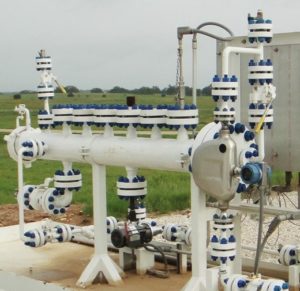
An interesting aspect of corrosion protection for internal corrosion oil and gas systems is that it is both a science and an art. Obviously one must understand the chemistry and physics of the materials to be protected and, just as obvious, one must fully understand the chemistry and physical characteristics of the hydrocarbon, water and gas passing through the protected material. What is not so apparent is the art of understanding the relationship of these variables plus the amount and type of solids, velocity and flow dynamics. Additionally how do all these variables interact and how does that influence the amount and morphology of the metal loss? Did we mention understanding the role of bacteria and the types of corrosion these organisms may cause?
For the last thirty plus years EnhanceCo has provided pipeline corrosion protection solutions to the energy industry. These corrosion protection services include equipment designed to provide important data as to the root cause of failures plus the field and laboratory services necessary to provide protection from corrosion. A quick summary of the equipment designed to provide protection from corrosion-related consequences would include:
- Corrosion Coupons
- Fixed and Retractable Coupon Holders
- Corrosion Coupon Retrieval Tools
- Electrical Resistance (ER) Probes with Hand Held or Remote Monitoring Devices
- Linear Polarization (LPR) Probes with Hand Held or Remote Monitoring Devices
- Hydrogen Probes, Fixed, Magnetic and Adjustable Versions
- Galvanic Probes for High and Low Pressure Water Systems
- Microbiological Assessment Tools (including Serial Dilution Systems for Aerobic and Anaerobic Bacteria, Specialized Kits for rapid enumeration of bacterial levels, and DNA Analysis)
- High Quality Photographic Equipment (for documentation of the extent and type of damage to the vessel).
Corrosion protection services include comprehensive field surveys, field and laboratory analysis, documentation and training.
In order to continue developing protection technologies against corrosion, the entire energy industry must capitalize on the on-going improvements in those technologies. Remote monitoring has improved the process of data collection and interpretation. Advances in Magnetic Flux Leakage (MFL) have significantly improved the accuracy and characterization of anomalies in steel pipelines. Specialized computer programs are being used to predict the type and extent of corrosion in fluid systems and have led to significant reductions in the unauthorized release of products in oil and gas systems as well as in the entire energy industry. All point to significant advances in corrosion protection.

